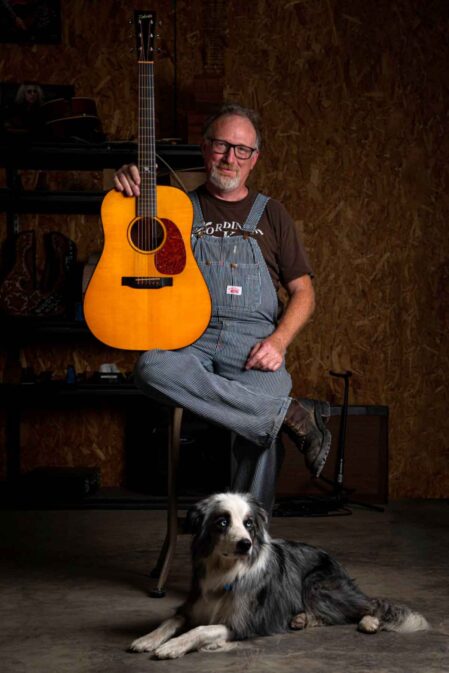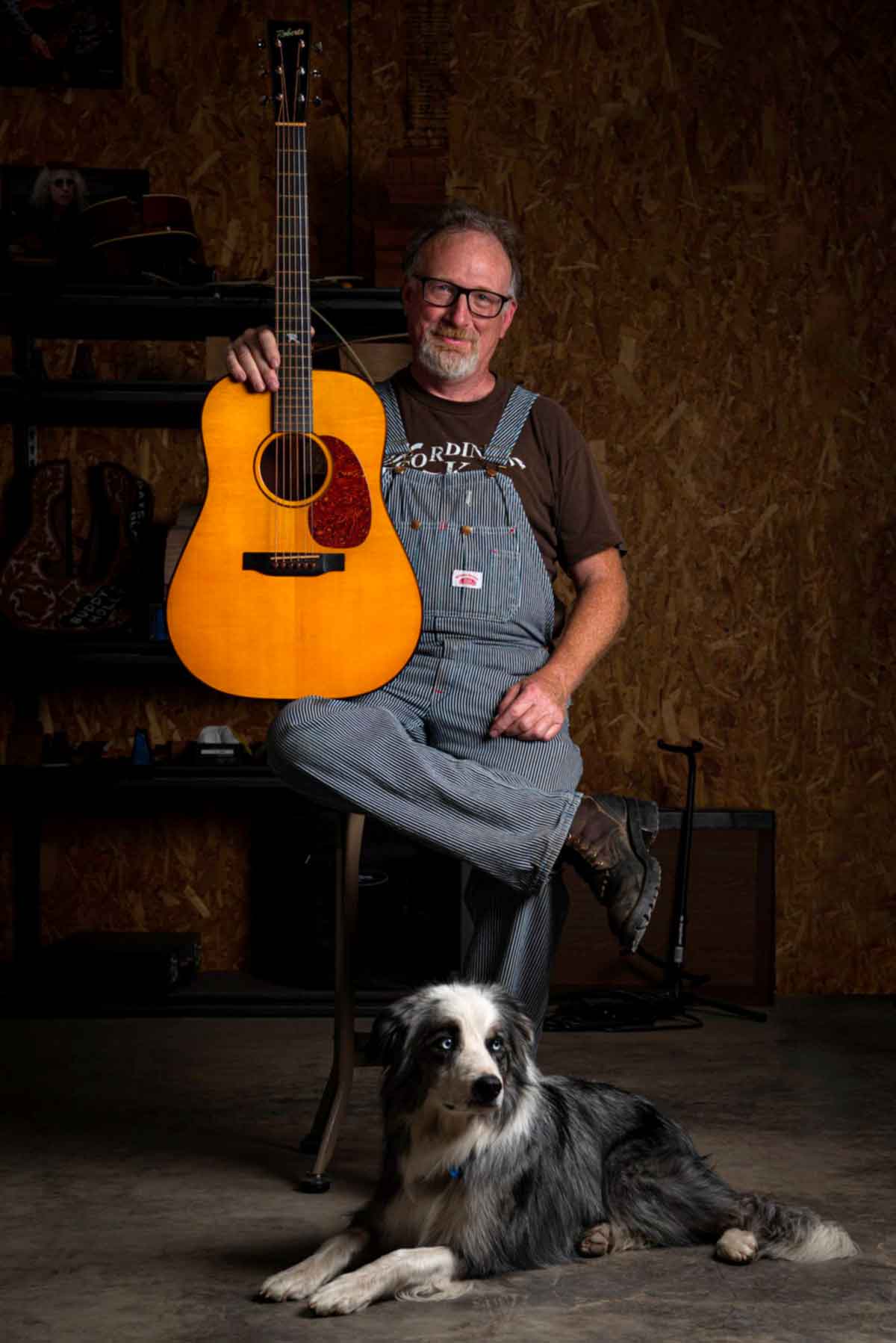Dan Roberts is a master luthier whose lifelong passion for woodworking began in his grandfather’s unconventional home workshop—where the bedroom stored lumber, and the living room was a fully equipped woodshop. As a boy, Dan learned to build simple projects there and continued his training with his father, in school woodshop classes, and through college fine arts courses focused on wood sculpture.
Before entering the world of instrument making, Dan worked extensively in the timber industry—as a tree faller, a state-licensed timber scaler, and a molder planerman for Plum Creek Timber Company. This hands-on experience with wood at every stage—from forest to finish—formed a deep foundation for his later work as a luthier, where understanding wood’s moisture, grain, and behavior is critical.
Dan began building instruments professionally at Flatiron Banjo and Mandolin Company, a small shop where he brought his extensive woodworking skills and drive to learn. When Gibson Guitar acquired Flatiron, he rose through the ranks by staying after hours to learn every process in the factory. Eventually, he became Rear Plant Production Manager during the expansion into a larger factory in Bozeman. Yet, Dan realized that high-volume production didn’t align with his personal values. He longed to work at a finer craft level, producing fewer instruments with greater attention to detail.
That realization led him to the Santa Cruz Guitar Company (SCGC), known globally for its high-end, small-shop guitar craftsmanship. Dan joined a team of just four and soon became instrumental in the company’s operations—designing new models, building archtop guitars, and managing most of their warranty repair work. After six years in California, Dan returned to Montana while continuing his work with SCGC for another 11 years from his home shop. He later rejoined SCGC in a production management role while maintaining his Montana base.
While in Santa Cruz, Dan further honed his skills under a master Japanese carpenter trained in the temple-building tradition. He learned to sharpen and use traditional Japanese chisels and planes, integrating these techniques into his guitar-making. This unique blend of traditional handcraft and modern lutherie set him apart in the field.
Today, Dan is internationally recognized for his meticulous craftsmanship and deep knowledge of wood. He continues to build guitars using hand tools, hot hide glue, and the centuries-old go-bar deck clamping system. His instruments reflect a lifetime spent mastering the material—combining fine art, tradition, and precision to create guitars that are both functional and deeply expressive works of art.
Beyond building, Dan is also a passionate educator and mentor, often advising young luthiers and sharing the techniques he spent decades refining. His career reflects not just technical excellence, but a commitment to keeping the lineage of fine instrument making alive—honoring the past while shaping the future of the craft.
This year, Dan and guest musicians will take the Folklife stage to perform, while Dan shares insights into instrument building and its connection to the history of music.


